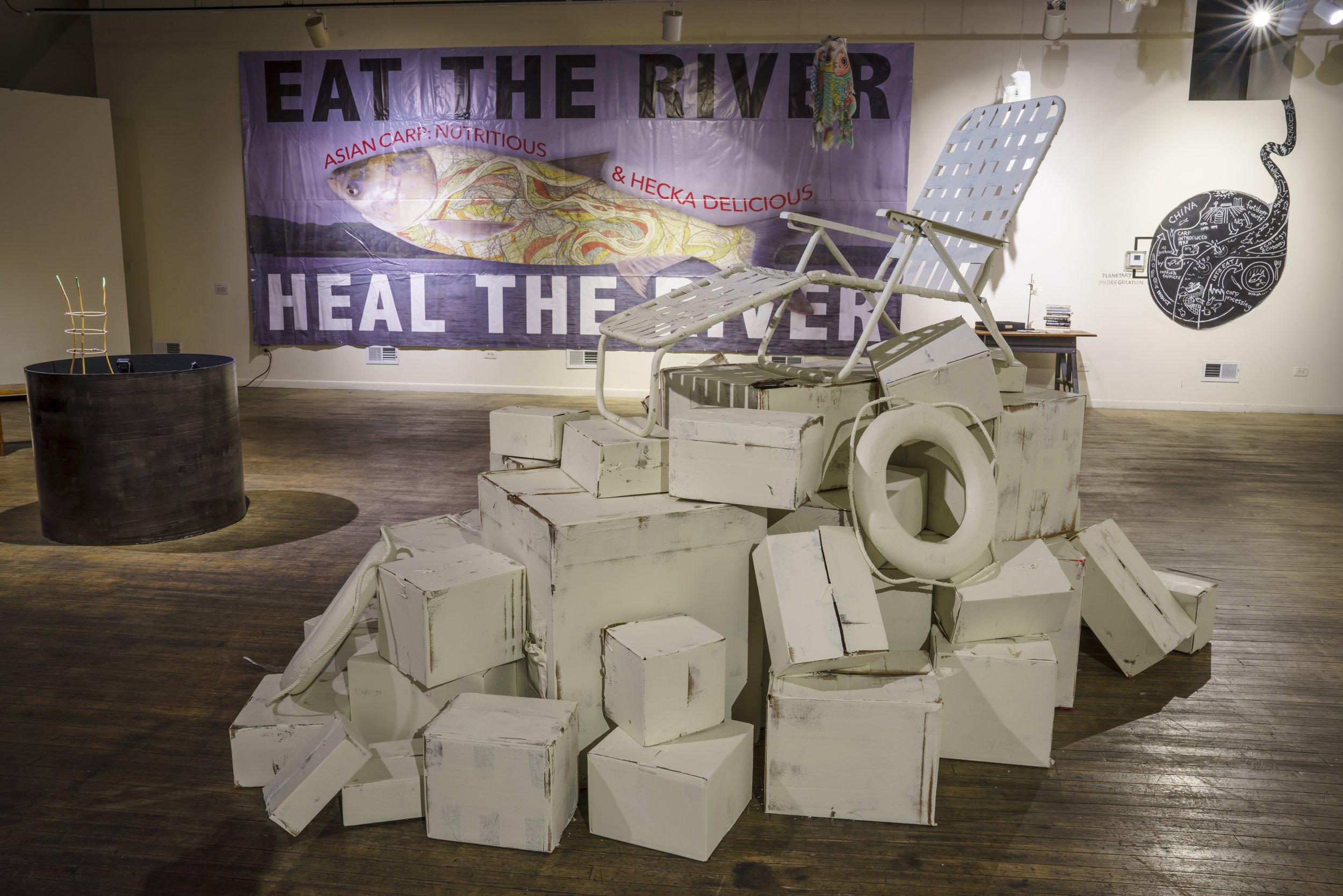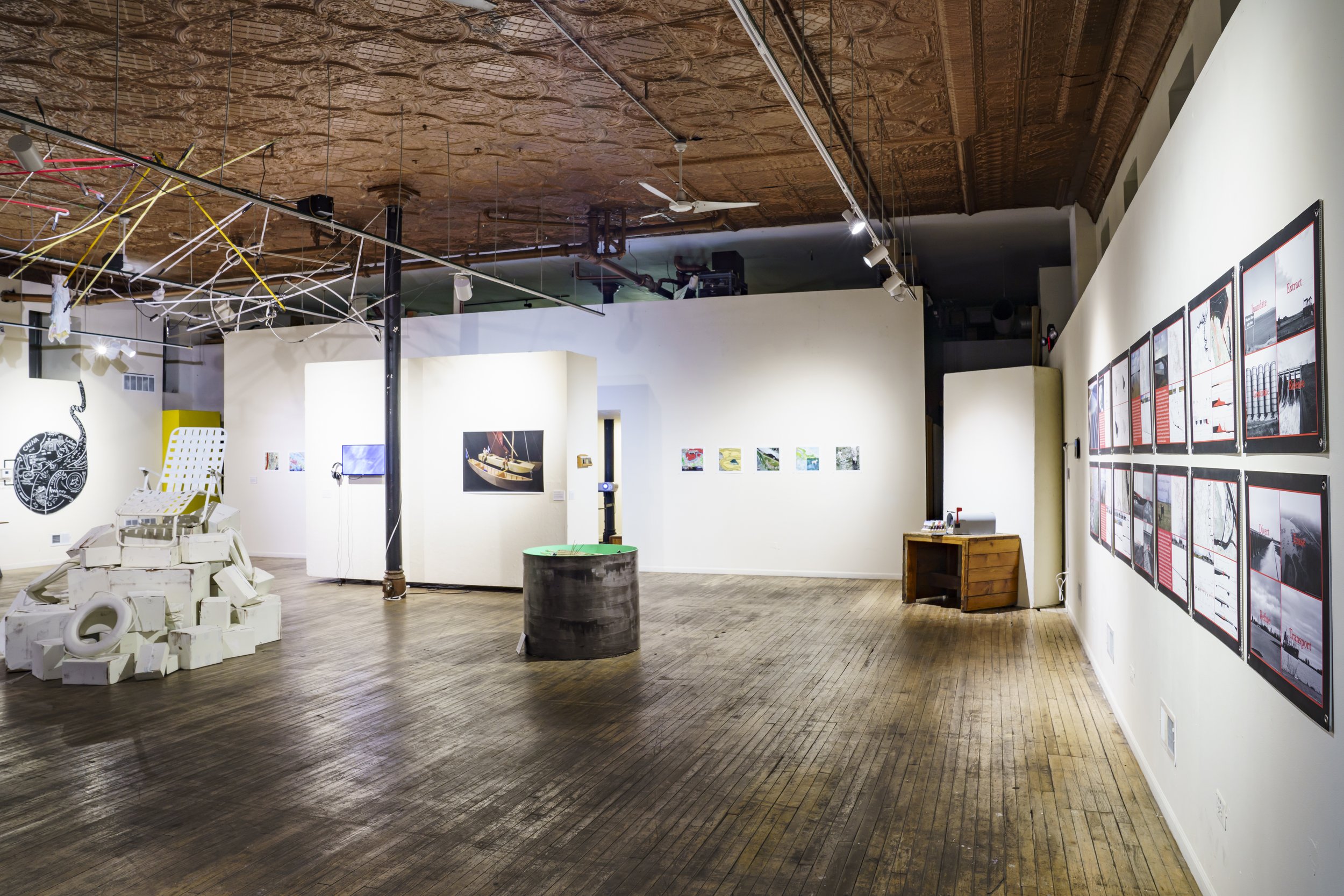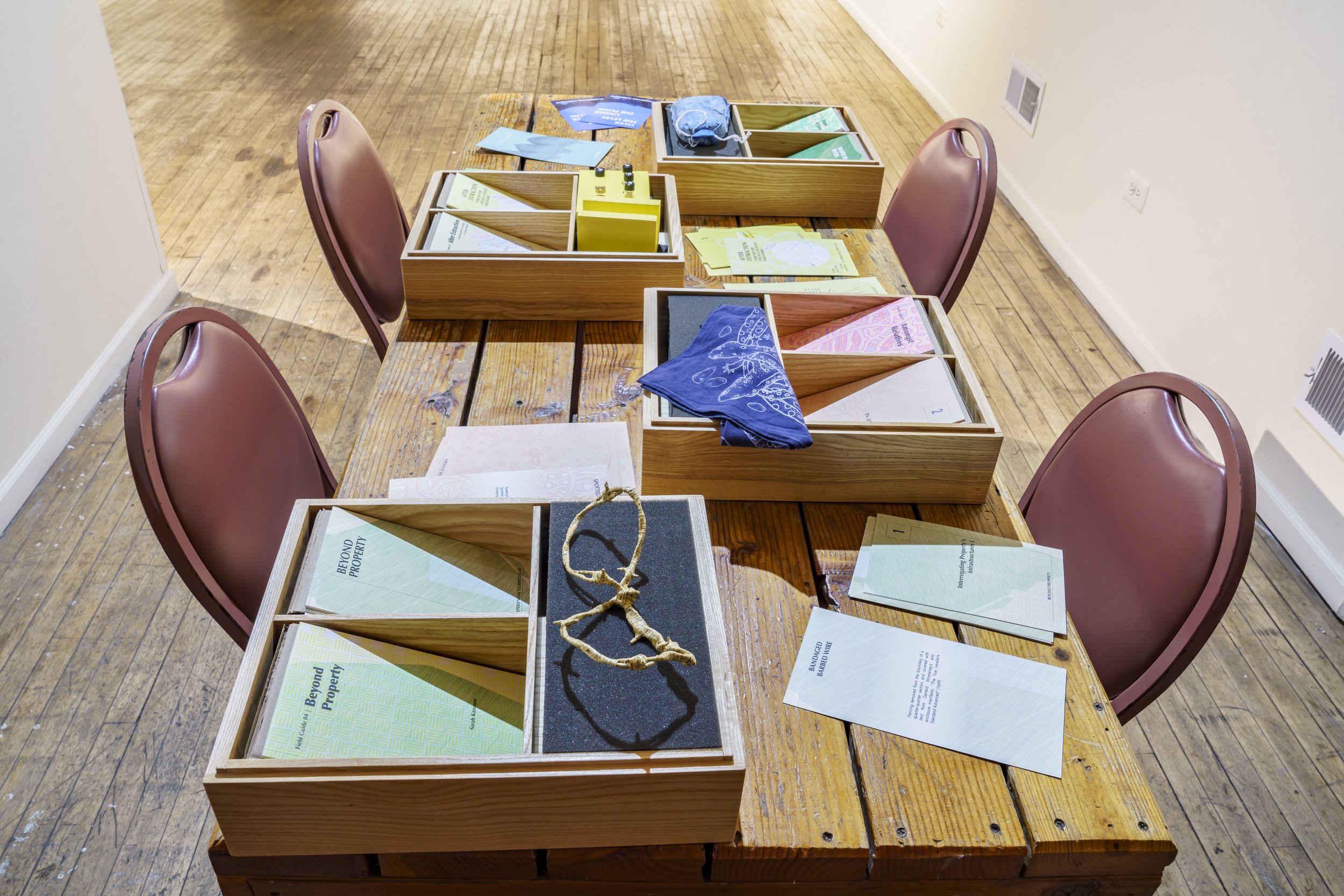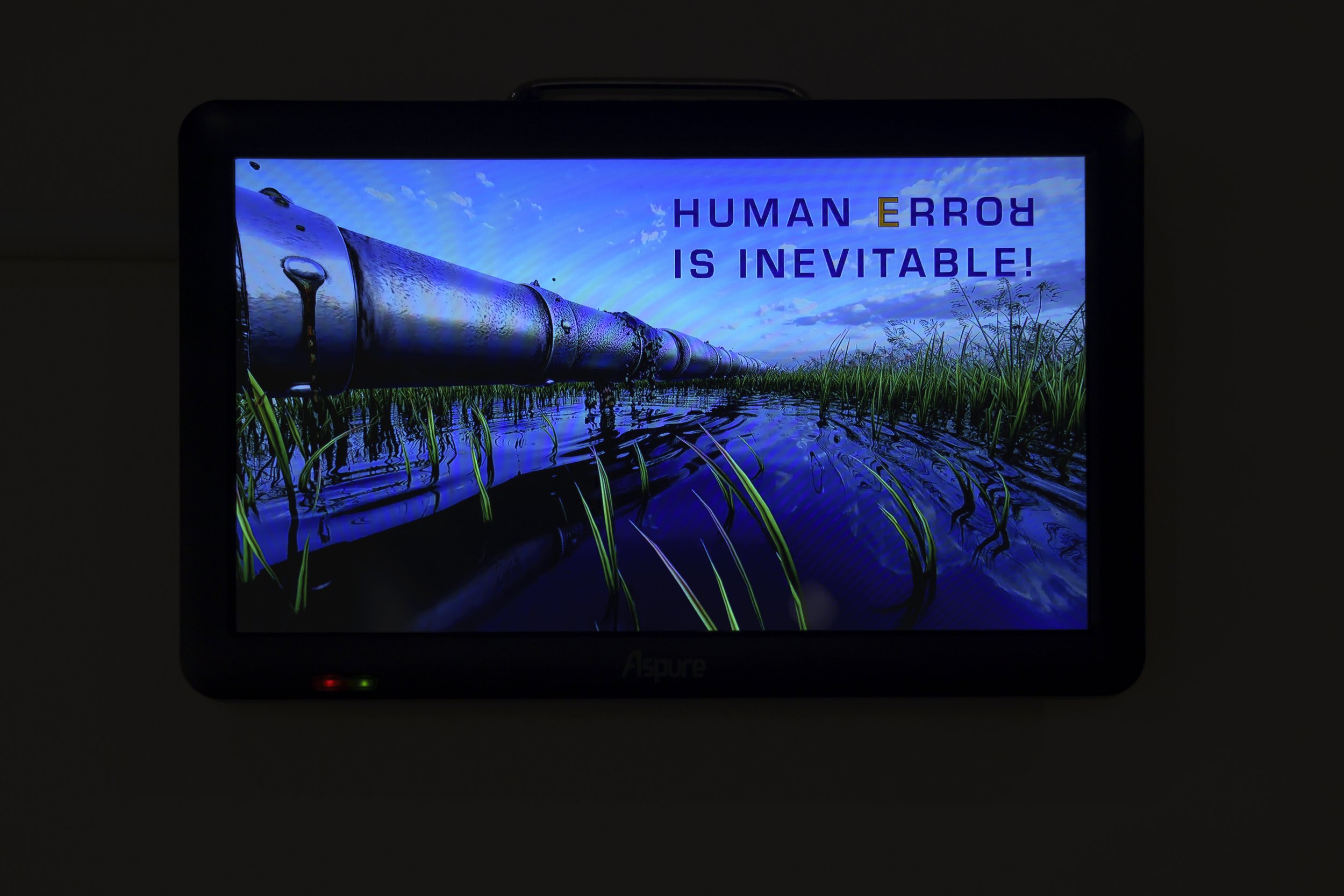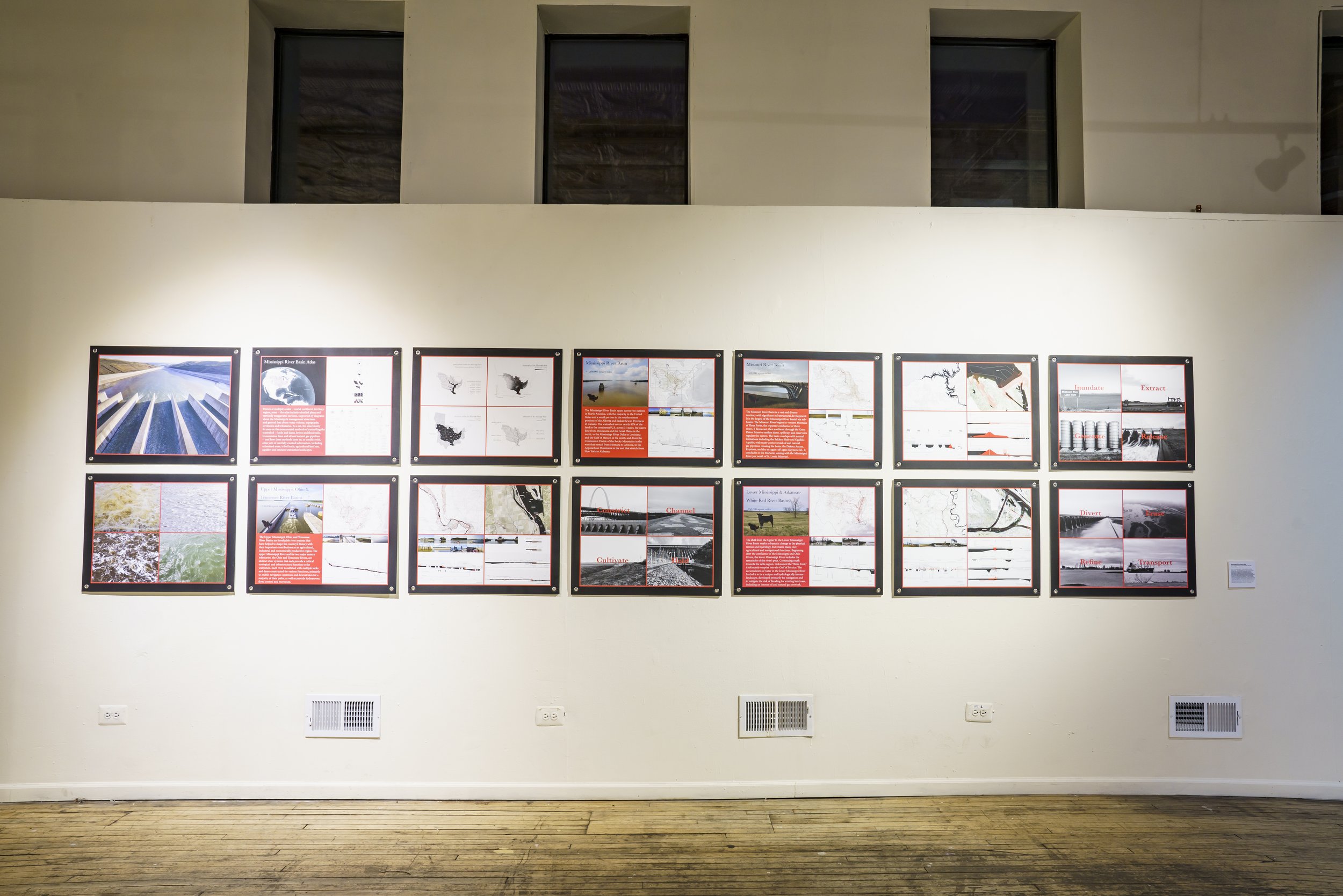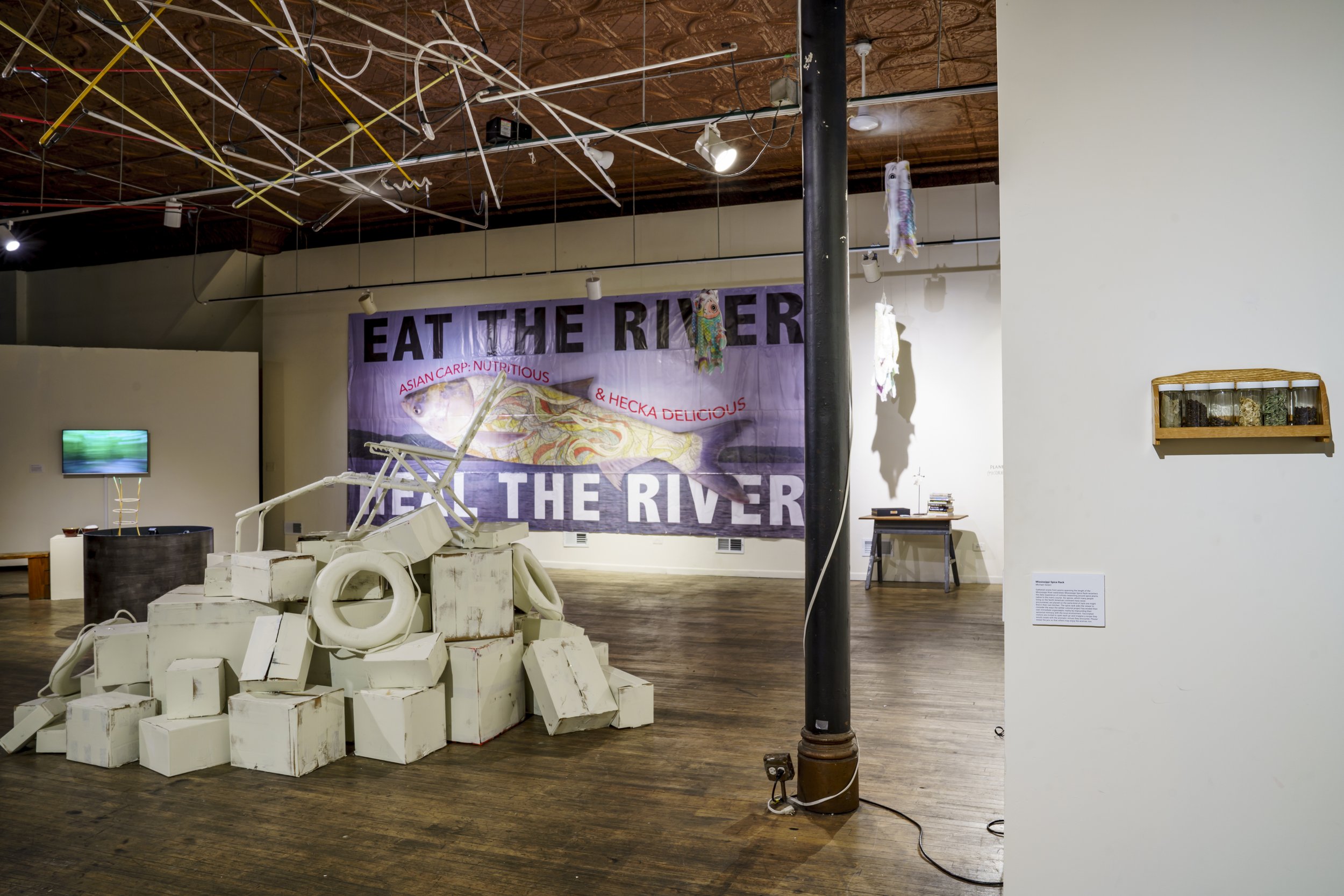In 2019, an extensive network of artists brought all their senses to the Mississippi River, paddling downstream in canoes, venturing up multiple tributaries, clambering over collapsing infrastructures, trudging across muddy banks and experiencing the river’s seasonal pulse. From the Headwaters in Minnesota to the Bird’s Foot Delta in New Orleans we set up five research hubs, delving deep into written and oral histories and creating works of all kinds, including guided tours, performances, pamphlets, lectures, shared meals and temporary shows for visitors and local inhabitants. Our concerns ranged across river ecologies, Indigenous, Black and settler-colonial histories, agriculture, urbanization, engineering, state and corporate violence, and the overflowing of liberation struggles that continue today.
How to put all that into a single retrospective? What we’ve developed is a collectively organized exhibition curating both existing and new works, gathering energy with an opening in Minneapolis, then setting out for further meanders downstream. Just follow the water to the latest edition: from the Mississippi up the Illinois, to the North and South branches of Chicago’s Backward River. Co-Prosperity and a newly opened space, Watershed Art & Ecology, are the ports. The artistic research group Deep Time Chicago is the host. Love and chaos are the keys.
Welcome to the OVERFLOW.
Festival:
– The Chicago edition of OVERFLOW has been conceived in collaboration with the Backward River Festival, developed by the UIC Freshwater Lab and the School of Art and Art History. The festival takes place on October 16-17 at the Eleanor St Boathouse, 2828 S Eleanor St, 11am-7pm.
Project website: tinyurl.com/overflow-chicago
Host website: deeptimechicago.org
Festival website: thebackwardriver.org
Venues:
– Co-Prosperity, 3219-21 S Morgan St. Reception Friday Oct 15 6-9 pm, visiting hours Fridays 4-8pm and Saturdays 2-6pm, open through November 13.
– Watershed Art and Ecology, 1821 S. Racine Ave. Visiting hours Friday and Saturday 4-8pm, Sunday 2-6pm, open October 22 through December 1.
Participating artists:
Kayla Anderson, Sara Black, Jeremy Bolen, Isabell Carbonell, Andrea Carlson, Jennifer Colten, Adam Crosson, Annie-Laurie Erickson, Tia-Simone Gardner, Beate Geissler, Amber Ginsburg, Ryan Griffis, Monica Haller, Derek Hoeferlin, Brian Holmes, Sarah Kanouse, Jenny Kendler, John Kim, Brian Kirkbride, Emily Knudson, Sarah Lewison, John Lund, Marlena Novak, Heather Parrish, Claire Pentecost, Sydney Petersen, Mat Rappaport, Steve Rowell, Oliver Sann, Jenny Schmid, Michael Swierz, Corinne Teed, Joe Underhill, Monique Verdin, Joslyn Willauer, Paul Wu, Andy Yang, Jay Alan Yim.
Acknowledgments:
The research phase of this project unfolded in 2019 under the title Mississippi. An Anthropocene River, with extensive input and generous support from the Haus der Kulturen der Welt and the Max Planck Institute for the History of Science, both in Berlin, Germany. For documentation of this continental-scale transdisciplinary cultural program, see https://anthropocene-curriculum.org/project/mississippi.
The first version of this exhibition was shown at:
Q.arma Gallery in Minneapolis, July 29-Sept 30, 2021.
It was conceived in parallel to the exhibition:
Many Waters: A Minnesota Biennial, at the Minnesota Museum of American Art, July 24-Oct 2, 2021.
Over 50 institutions were involved in the Anthropocene River project, but special thanks to Goethe-Institut Chicago, Augsburg University River Semester, the Center for the Gulf South at Tulane University, Macalester College, the University of Minnesota, and the Q.arma Gallery.
DEEP TIME CHICAGO is an art/research/activism initiative formed in the wake of the Anthropocene Curriculum program at the Haus der Kulturen der Welt in Berlin, Germany, in 2016. Our goal is to explore one core idea: humanity as a geological agency, capable of wreaking violent disruptions on the earth system and inscribing present modes of industrialized existence into deep time. By knitting together group readings, guided walks, lectures, panels, screenings, performances, publications and exhibitions, we are developing a public research trajectory, offering a variety of formats where Chicago area inhabitants can grapple with the crucial questions of global ecological change, as experienced right here at home. Through our participation in Mississippi. An Anthropocene River we have struck up new friendships and launched continental-scale collaborations, whose artistic expressions can now be seen in the exhibition OVERFLOW.

